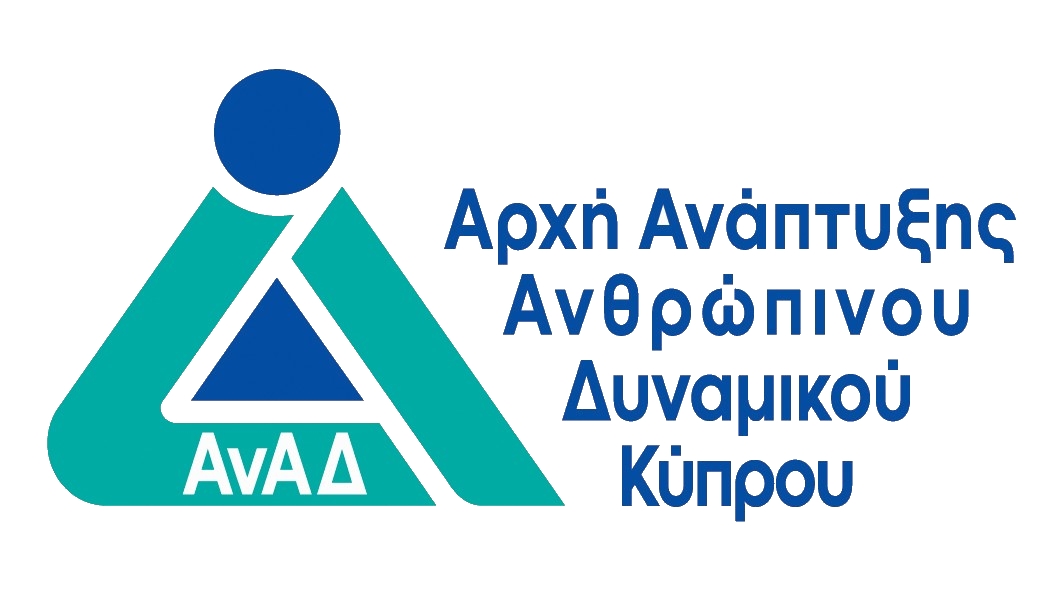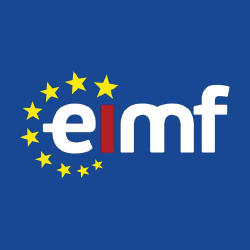
HRDA Vital Importance: Optimizing AI Governance for Responsible and Scalable Automation
- Καινοτομία/ Start Ups - Πληροφορική - Χρήστες - Πληροφορική - Επαγγελματίες IT - Νομοθεσία, Νομική & Δικηγόροι

ΠΕΡΙΓΡΑΦΗ
The programme is approved by the Cyprus Human Resource Development Authority (HRDA) as a “Vital Importance” training programme. HRDA Vital Importance programme fees are fully subsidised by the HRDA for up to three (3) eligible participants per business entity.
Course Overview
This intensive 18-hour programme — composed of 14 hours of classroom-based training and 4 hours of personalized in-house consultation — is designed to equip organizations with the expertise and structured methodologies needed to implement robust, ethical, and scalable AI governance frameworks. As artificial intelligence increasingly drives business decisions and operational efficiencies, governance is evolving into a critical organizational function, ensuring not only compliance but also sustained innovation, trust, and accountability. The programme presents governance as a strategic lever — a means to align cutting-edge technological adoption with corporate values, legal obligations, and societal expectations. Through a balance of theoretical grounding and real-world application, participants are guided to recognize the impact of governance on organizational resilience, risk posture, and competitive differentiation.
Building on international best practices and the latest global standards, the curriculum integrates case studies, facilitated discussions, and collaborative exercises. Participants will learn to define governance priorities, establish risk appetite, and embed accountability into organizational culture and operations. By the end of the programme, they will have developed actionable strategies for operationalizing governance that are context-specific yet aligned with globally recognized principles of trustworthy AI.
- Understand governance as a strategic, value-driven organizational function.
- Learn to align innovation with compliance and stakeholder trust.
- Explore governance frameworks informed by global standards.
- Develop actionable strategies to embed governance across operations.
- Gain confidence in managing governance within a rapidly evolving AI landscape.
ΣΚΟΠΟΣ ΣΕΜΙΝΑΡΙΟΥ
Learning Objectives
Knowledge
Participants will gain an advanced understanding of the fundamental and emerging concepts that underpin effective AI governance. This includes a thorough exploration of legal, ethical, and operational frameworks guiding the classification and management of AI systems. They will examine the AI lifecycle and risk management lifecycle in depth, analyzing how each stage presents unique governance challenges and opportunities. Special attention is given to mapping stakeholder roles and responsibilities in multi-party AI value chains, with emphasis on how governance reinforces organizational integrity and public trust.
- Master AI system classification, governance frameworks, and stakeholder obligations.
- Analyze the AI lifecycle and risk management lifecycle in detail.
- Understand governance within the broader ethical, societal, and reputational context.
- Recognize the strategic importance of governance for organizational credibility.
Skills
The programme provides participants with the skills to critically evaluate their organization’s AI readiness and implement governance frameworks that are effective, measurable, and adaptable. They will learn to design oversight committees, define risk appetite and tolerance aligned with organizational strategy, and develop robust monitoring and evaluation metrics. Through guided exercises and real-world scenarios, they will practice applying these principles to sector-specific challenges while maintaining flexibility to adapt governance to dynamic contexts.
- Conduct readiness and maturity assessments for AI governance.
- Design governance frameworks with clear accountability and oversight mechanisms.
- Define and operationalize risk appetite and tolerance.
- Develop and monitor governance metrics and performance indicators.
- Tailor governance strategies to diverse organizational needs.
Attitudes
The programme fosters a forward-thinking, proactive mindset that views governance as a catalyst for sustainable innovation and competitive advantage. Participants will be encouraged to champion ethical AI practices, promote transparency and accountability across teams, and lead the cultural transformation necessary to embed governance principles at all levels of the organization.
- Advocate for ethical and transparent AI practices throughout the organization.
- Promote interdisciplinary collaboration and continuous improvement.
- Cultivate a culture of accountability, trust, and innovation.
- Position governance as both a safeguard and an enabler of progress.
ΣΕ ΠΟΙΟΥΣ ΑΠΕΥΘΥΝΕΤΑΙ
This programme is designed for a broad spectrum of professionals who influence, implement, or oversee AI initiatives within their organizations. It addresses the needs of senior decision-makers who set strategic priorities, policy developers shaping ethical and regulatory alignment, technical leaders managing deployment, as well as mid-level managers and advisors tasked with operationalizing governance frameworks. The curriculum is also relevant to consultants and cross-functional team members involved in AI-enabled processes, providing them with the knowledge and skills to contribute effectively to responsible and sustainable AI adoption. By fostering a shared understanding across organizational levels, the programme ensures alignment of innovation, compliance, and societal trust.
- C-Level Executives and Senior Managers: shaping organizational strategy and risk appetite for AI adoption.
- Legal, Compliance, and Policy professionals: ensuring alignment with regulatory and ethical standards.
- Governance, Risk, and Compliance (GRC) specialists: responsible for designing and monitoring oversight mechanisms.
- Regulators and policymakers: developing and evaluating AI governance frameworks and guidelines.
- Senior Technical and Programme Leaders: managing implementation and integration of AI solutions.
- Business Unit Leaders: embedding responsible AI into functional areas such as marketing, operations, and customer service.
- Mid-level Managers and Advisors: supporting governance implementation and bridging strategy with operations.
- Consultants and External Advisors: guiding clients on best practices in AI risk management and governance.
- Cross-functional Team Members: contributing to AI-enabled projects and ensuring operational compliance.
- Future Leaders and High-Potential Talent: preparing to take on governance-related responsibilities in an AI-driven context.
ΠΕΡΙΣΣΟΤΕΡΕΣ ΠΛΗΡΟΦΟΡΙΕΣ
Training Outline
Introduction: AI and Governance Fundamentals
This opening session sets the foundation by exploring the strategic relevance of AI governance in a global context. Participants are introduced to core concepts, definitions, and typologies of AI, with emphasis on how clarity in terminology influences accountability and operational decisions. Functional distinctions — such as reactive systems, limited memory models, and emergent AI paradigms — are examined to illustrate their governance implications. Exercises and group discussions help participants internalize how imprecise definitions can lead to misaligned responsibilities, inadequate oversight, and reputational risk.
- Clarify the objectives of governance as a strategic priority.
- Introduce AI definitions and typologies with reference to international norms.
- Discuss functional categories of AI and their operational implications.
- Engage in exercises illustrating the consequences of unclear terminology.
Status & Regulatory Context
In this module, participants assess the motivations and practical impacts of contemporary regulatory and policy frameworks shaping AI governance. They examine how these frameworks delineate roles and obligations across the AI lifecycle, using a detailed case study on credit decisioning to illustrate the tension between operational goals and regulatory constraints. The session encourages critical discussion on how governance informs resource allocation, innovation strategy, and organizational risk tolerance.
- Analyze the current regulatory and policy landscape for AI governance.
- Map stakeholder responsibilities throughout the AI lifecycle.
- Explore a real-world case study highlighting governance challenges.
- Discuss governance’s role in shaping strategy and mitigating risk.
Understanding AI Risks
This session explores the distinctive risk profiles of AI systems, including systemic bias, lack of transparency, susceptibility to adversarial manipulation, and the risk of hallucinations in generative models. Through interactive case studies and group exercises, participants learn to diagnose vulnerabilities, assess potential impacts, and design mitigation strategies that align with organizational goals and ethical commitments. The discussion underscores the importance of anticipatory governance in addressing emerging risks.
- Identify key risk vectors unique to AI technologies.
- Examine illustrative scenarios and their governance implications.
- Practice assessing organizational vulnerabilities through exercises.
- Explore strategies for mitigating risks while enabling innovation.
AI Risk Management Lifecycle
Participants gain comprehensive insight into the AI risk management lifecycle, learning to map governance responsibilities at each stage. The module demonstrates how to translate high-level principles into operational controls and continuous monitoring mechanisms. Using hands-on exercises, participants develop risk dashboards and scorecards to measure performance and maturity over time, enhancing the adaptability and resilience of governance structures.
- Understand the structure and stages of the risk management lifecycle.
- Design actionable governance controls and mitigation measures.
- Build and refine monitoring dashboards and risk scorecards.
- Foster iterative improvement through adaptive governance practices.
Embedding Governance in Operations
This module highlights how to integrate governance principles into everyday business processes without compromising agility or innovation. Participants learn to formalize risk appetite and governance metrics, ensuring alignment between strategic objectives and operational practices. Real-world examples illustrate how governance can support efficiency while upholding accountability and public trust, creating a culture that values responsible automation.
- Define and institutionalize governance metrics and risk appetite.
- Embed oversight mechanisms into diverse business functions.
- Balance operational efficiency with accountability and transparency.
- Foster a culture of responsible innovation through applied governance.
Regulatory Obligations and Risk Categorization
The final module consolidates learning by reviewing specific organizational obligations and risk classification schemes. Participants analyze how to differentiate between high-risk and limited-risk systems and map responsibilities across the AI value chain. A capstone exercise encourages participants to synthesize insights from the entire programme into actionable governance initiatives.
- Review key obligations and due diligence practices.
- Distinguish risk categories and stakeholder roles.
- Synthesize learning through a capstone application exercise.
- Develop leadership capacity for implementing governance initiatives.
Training Style
The programme blends theoretical depth with hands-on learning, creating an engaging environment where participants can experiment with real-world applications of governance concepts. Through facilitated discussions, peer feedback, case studies, and reflective exercises, participants develop the confidence to design and lead governance initiatives in their organizations. The instructional approach is designed to emulate best practices from international executive education, fostering critical thinking, collaboration, and practical skill-building.
- Combine rigorous instruction with experiential learning.
- Use real-world case studies and applied simulations.
- Encourage collaborative problem-solving and peer learning.
- Integrate structured reflection for deeper understanding.
- Model international executive education best practices.
CPD Recognition
This programme may be approved for up to 18 CPD units in FinTech & Financial Regulation. Eligibility criteria and CPD Units are verified directly by your association, regulator or other bodies with which you hold membership.
In-house Training /Advisory Session
The concluding consultation session allows participants to tailor the knowledge gained to their specific organizational context. They conduct readiness assessments, design governance committees and accountability pathways, and develop monitoring and evaluation tools to ensure continuous improvement. The session emphasizes practical, sustainable implementation of governance frameworks aligned with strategic objectives.
- Conduct organizational readiness and maturity assessments.
- Design governance structures, committees, and accountability pathways.
- Create dashboards and performance monitoring tools.
- Align governance mechanisms with organizational priorities.
- Develop actionable, sustainable governance plans.
Αναλυτικό Κόστος Σεμιναρίου
Για Δικαιούχους ΑνΑΔ
- € 1800.00
- € 1800.00
- € 0.00
- € 0.00
- € 0.00
Για μη-Δικαιούχους ΑνΑΔ
- € 1800.00
- € 0.00
- € 342.00
- € 1800.00
- € 2,142.00
ΠΡΟΓΡΑΜΜΑ ΣΕΜΙΝΑΡΙΟΥ
Τρίτη - 04 Νοε 2025
Ώρα
09:00 - 17:15
Τοποθεσία:
EIMF (Λευκωσία)
Τετάρτη - 05 Νοε 2025
Ώρα
09:00 - 17:15
Τοποθεσία:
EIMF (Λευκωσία)
 Ελληνικά
Ελληνικά  English
English



 Αγγλικά
Αγγλικά
 18 ώρες
(
2 μέρες
)
18 ώρες
(
2 μέρες
)











































